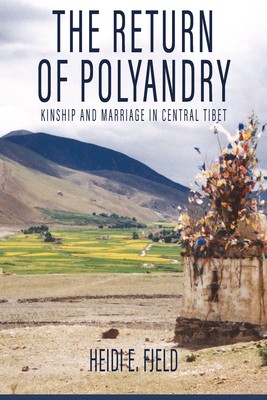
- We will send in 10–14 business days.
- Author: Heidi E Fjeld
- Publisher: Berghahn Books
- ISBN-10: 180073607X
- ISBN-13: 9781800736078
- Format: 15.2 x 22.9 x 1.4 cm, hardcover
- Language: English
- SAVE -10% with code: EXTRA
Reviews
Description
Tibet is known for its broad range of marriage practices, particularly polyandry, where two or more brothers share one wife. With economic development and massive Chinese social and political reforms, including new marriage laws prohibiting plural marriages, polyandry was expected to disappear from Tibetan social lives. This book takes as its starting point the surprising increase in polyandry in Panam valley from the 1980s. It explores married lives in polyandrous houses and develops a theory of a flexible kinship of potentiality through the lens of a farming village in Tibet Autonomous Region.
EXTRA 10 % discount with code: EXTRA
The promotion ends in 17d.19:32:16
The discount code is valid when purchasing from 10 €. Discounts do not stack.
- Author: Heidi E Fjeld
- Publisher: Berghahn Books
- ISBN-10: 180073607X
- ISBN-13: 9781800736078
- Format: 15.2 x 22.9 x 1.4 cm, hardcover
- Language: English English
Tibet is known for its broad range of marriage practices, particularly polyandry, where two or more brothers share one wife. With economic development and massive Chinese social and political reforms, including new marriage laws prohibiting plural marriages, polyandry was expected to disappear from Tibetan social lives. This book takes as its starting point the surprising increase in polyandry in Panam valley from the 1980s. It explores married lives in polyandrous houses and develops a theory of a flexible kinship of potentiality through the lens of a farming village in Tibet Autonomous Region.


Reviews